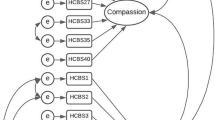Abstract
An offense can jeopardize interpersonal ties. When this happens, conflict erupts and disagreement appears. Arguments tend to start, accompanied by angry expressions and behaviors that might break up the relationship. At first there is a general feeling of discontent, accompanied by inappropriate behavior. There is always a situation before the crisis, when antagonism and the dysfunctional aspects of the relationship are processed. In this chapter we will focus on those behaviors manifested after the offensive situation. After conflict and disagreement appear, there is a process of withdrawal, which tends to involve many emotions, and which generates different reactions. This withdrawal tends to be accompanied by vindictiveness, resentment, revenge, feelings of vindication, guilt, fears, grief, anxiety and other emotions. The two people try to avoid each other. They look the other way; they do not want to see each other. This situation tends to become even more complicated with the participation of the friends or relatives of each person involved in the conflict, who may wish to show solidarity, provoke further animosity, or encourage reconciliation.
Access this chapter
Tax calculation will be finalised at checkout
Purchases are for personal use only
Preview
Unable to display preview. Download preview PDF.
Similar content being viewed by others
References
Havighurst, R. J. and Taba, R, 1949, Adolescent Character and Personality. John Wiley and Sons, New York.
Pereyra, M., 1996, Development and Validation of an Instrument to mesure Hope-Hopelessness. Acta psiquiht Psicol Am Lat, 42(3)247–259.
Pereyra, M., 1996, Estrategias y técnicas de reconciliación Psicoteca, Buenos Aires.
Spielberger, C.D., 1985, Emotional reactions to stress: Anxiety and Anger. In How to define and research stress ( A.Eichler, M. Silverman, and D.Pratt eds.), American Psychiatric Press, Washington, pp. 65–70.
Kancyper, L., 1991, Resentimiento y remordimiento. Estudio psicoanalitico. Paidós, Buenos Aires.
Lazarus, RS., and Folkman, S., 1986, Stress, Appraisal and Coping. Springer Publishing Company, Inc., New York.
Enright, RD., and Zell, RL., 1989, Problems Encountered When We Forgive One Another. Journal of Psychology and Christianity, 8 (1): 52–60.
Pereyra, M., 1993, Psicologia del perdón. Publika, Santiago de Chile.
Pereyra, M., 1996, Development and Validation of an Instrument to mesure Hope-Hopelessness. Acta Psiquiót Psicol Am Lat, 42 (3): 247–259.
Moreno, J. E., and Pereyra, M., 2000, Cuestionario de Actitudes frente a Situacions de Agravio. Universidad Adventista del Plata, Libertador San Martin, Argentina.
Bar-On, R., 1994, EQI: The Emotional Quotient Inventory. Doctoral Dissertation, Tel Aviv University, Israel.
Costa, P., and McCrae, R, 1995, The Revised NEO Personality Inventory. Psychological Assessment Resources, Odessa.
Pereyra, M., 1995, Hope-Hopelessness as a Diagnostic and Predictive Variable in the Health-Illness Process. Doctoral Dissertation, Universidad Católica de Córdoba, Argentine.
Derogatis, L.R., 1977, SCL-90 (Revised) Version Manual-I. Johns Hopkins Universty, Baltimore.
Ramirez, J., and Ramirez, J.A., 1999, Cross-Cultural Study of Attitudinal Approaches to Grievance: Testing Attitude Questionnaire Validated in Spanish. XXVII lnteramerican Congress of Psychology, Caracas, Venezuela.
Maia Santos, A.C., 1999, The ATOS-Portuguese Version. Comparative Study Between Brazilian and Argentinean Students. XXVII Interamerican Congress of Psychology, Caracas, Venezuela.
Author information
Authors and Affiliations
Editor information
Editors and Affiliations
Rights and permissions
Copyright information
© 2001 Springer Science+Business Media New York
About this chapter
Cite this chapter
Pereyra, M., Moreno, J.E. (2001). Attitude toward offenders scale. In: Martinez, M. (eds) Prevention and Control of Aggression and the Impact on its Victims. Springer, Boston, MA. https://doi.org/10.1007/978-1-4757-6238-9_46
Download citation
DOI: https://doi.org/10.1007/978-1-4757-6238-9_46
Publisher Name: Springer, Boston, MA
Print ISBN: 978-1-4419-3366-9
Online ISBN: 978-1-4757-6238-9
eBook Packages: Springer Book Archive




